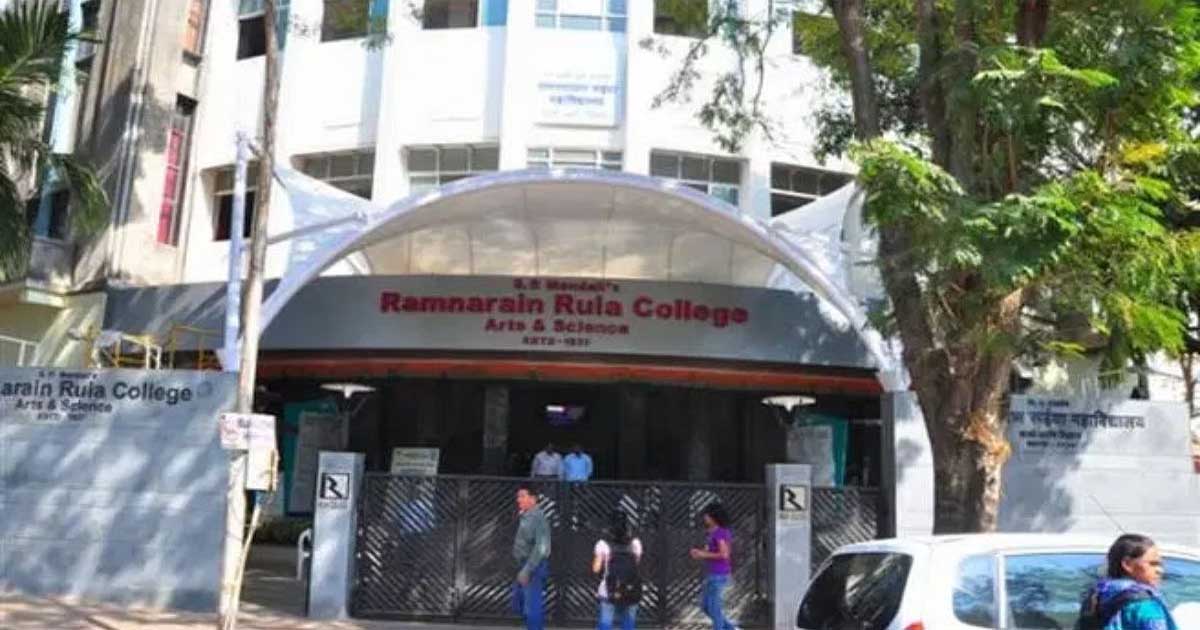Crime
Data of 2.46 lakh CISF personnel exposed online, claims report
A new report on Saturday claimed that personal files and health records of at least 2.46 lakh personnel from the Central Industrial Security Force (CISF) have allegedly been exposed online owing to a data security lapse.
A TechCrunch report cited an unnamed security researcher in India as saying that the researcher found a database packed with network logs generated by a security appliance connected to CISF’s network.
“But the database was not secured with a password, allowing anyone on the internet to access the logs from their web browser,” the report alleged.
The logs allegedly contained records for more than 246,000 full web addresses of PDF documents on CISF’s network.
Several of those logs contained personnel files, health records and personally identifiable information on CISF officers.
Some of the files are dated as recently as 2022, according to the report.
The researcher said the security appliance is built by India-based security company Haltdos.
The company, however, did not comment on the report.
IANS spoke to cyber-security researchers who said that the leaked CISF database in PDF files is likely to be related to a recent government server (that has even been indexed in Google Search) hack.
In January, reports surfaced that Covid-19 data of over 20,000 Indians, including health workers, in PDF files were available on the Raid Forums website on the Dark Web, and the hacker claims that they were directly coming from a government CDN (content delivery network) server.
The same documents were available freely on Google Search as “List of Beneficiaries Enrolled for Covid Vaccine” with keywords like RT-PCR results.
The Ministry of Health and Family Welfare later brushed off the reports, saying “no data has leaked from the CoWIN portal and the entire data of residents is safe and secure on this digital platform”.
The Ministry had emphasised that the vaccination platform “collects neither the address of the person nor the RT-PCR test results for Covid-19 vaccination”.
Last year, the Health Ministry and security researchers had denied the breach of Covid-19 vaccination data of 150 million Indians, after news of the hack spread online.
The data leak allegedly happened on the CoWin portal, which is used for vaccination.
Crime
Mumbai Hit-And-Run Case: 21-Year-Old Ruia College Student Dies After Being Abandoned On Road Following Accident At Sion

Mumbai: A 21-year-old college student, Mayur Kishor Rai, pursuing his undergraduate studies at Ruia College in Matunga, tragically died in a hit-and-run accident on the evening of October 4. The incident occurred near the Sion Bridge incline on Dr. B.A. Road, Sion East. The Sion Police have registered a case and are investigating the matter.
According to the FIR, Mayur, a resident of Lallubhai Compound in Mankhurd, lived with his family and used to commute to college on a KTM Duke 250 motorcycle (MH-03-EJ-5365) registered in his sister Deepa’s name. On the day of the incident, Mayur left for college on the bike and informed his mother, Sunita Rai,45, a social worker, around 6:30 PM that he was on his way home.
However, at around 8:15 PM, Sunita received a call from an unknown person using Mayur’s mobile, informing her that his bike had met with an accident near Sion Bridge.
The family rushed to the location by taxi but could not find Mayur at the spot. While on their way to Sion Hospital, they spotted his motorcycle near the zebra crossing on Dr. B.A. Road, where police were already present. Upon getting down from the taxi, the family found Mayur lying unconscious beside a small tempo.
An ambulance called by the police arrived shortly, and Mayur was rushed to Sion Hospital. Unfortunately, the doctors declared him dead on arrival.
According to traffic police patrolling the area, some bystanders had informed them about the accident and mentioned that an injured person was being taken to the hospital in a tempo. The tempo in question bore the registration number MH-48-CB-3469.
Investigations revealed that after the accident, local bystanders had placed the injured Mayur in the tempo for transportation. However, when no one accompanied him to the hospital, the frightened tempo driver allegedly offloaded Mayur near the zebra crossing and left him there unattended.
Police have filed a case against the unknown vehicle driver for causing death by negligent and rash driving, under relevant sections of the Bharatiya Nyaya Sanhita (BNS) and the Motor Vehicles Act. Efforts are ongoing to identify the vehicle involved in the hit-and-run.
Crime
Mumbai Crime: RCF And Tilak Nagar Police Bust Illegal Prostitution Racket At Chembur Bar; Manager, Owner And Customer Arrested

Mumbai: The Mumbai police have uncovered an illegal prostitution racket being run under the guise of a bar and restaurant at Pramila Bar and Restaurant located on RC Marg, Chembur. The RCF police, acting on a tip-off, raided the premises and apprehended the bar manager, bar owner, and a customer during the operation.
According to the complaint filed by Police Constable Amol Khatke,36, attached to the Crime Detection Unit of the RCF police station, the raid was carried out on the evening of October 4 at 6:45 PM by a joint team from RCF and Tilak Nagar police stations.
Police Inspector Mausami Patil of RCF police station had received credible information that prostitution activities were being conducted at the bar. Inspector Manisha Kulkarni from Tilak Nagar Police Station, designated as a Special Police Officer under the Immoral Traffic (Prevention) Act (ITPA) and Government Resolution dated March 14, 2006, participated in the joint operation.
To confirm the illegal activities, police deployed a decoy customer, a 32-year-old man residing near Atop Hill Church, Kokari Agar, Mumbai, to the bar. Upon approaching bar manager Nishikant Sadanand Sahu,43, a resident of Chembur Camp, the decoy was informed that the charge for sexual services was Rs 1,000.
The decoy agreed and was directed to the first floor of the establishment where he ordered a drink. When a female bartender approached and engaged in inappropriate conduct, the police team raided the premises immediately. The woman, aged 41 and a resident of Ambedkar Nagar, Mankhurd, was caught accepting Rs1,000 from the decoy. The money was seized as evidence.
In total, eight adult women were found working at the bar, allegedly involved in prostitution. These women hailed from various localities, including Chembur, Tilak Nagar, Mankhurd and Ulhasnagar in Thane.
During interrogation, the women revealed that their involvement was facilitated through acquaintances engaged in prostitution from their residential areas.
They claimed they were introduced to the bar manager, Nishikant Sahu, who in turn confessed to operating the prostitution racket in collaboration with bar owner Vasant Chandrashekhar Shetty.
Police have registered a case against the accused under Section 144(2) of the Bharatiya Nyaya Sanhita (BNS), and Sections 3, 4, and 5 of the Immoral Traffic (Prevention) Act. Further investigation into the racket is currently underway.
Crime
Mumbai Crime: 51-Year-Old Advocate Loses ₹2 Crore In Sextortion; FIR Filed

Mumbai: A 51-year-old advocate from Goregaon West was allegedly defrauded of Rs 2 crore by a 28-year-old woman from Himachal Pradesh who allegedly threatened to file a false rape case against him. The Goregaon police have registered a case against the woman Parul Rana, her parents, sister, and a friend for extortion and defamation.
The advocate Rajeev Ranjan, who filed the complaint on October 3, has represented India as an ambassador at the United Nations, World Trade Organization, G7, BRICS, UNICEF, the Commonwealth, and several other prominent international organisations and summits.
According to the FIR, Ranjan met Rana in May 2024 at his residence through mutual friends, after which they exchanged contact details and social media IDs. In June 2024, while Ranjan was in Geneva for a conference, Rana called him late at night, claiming her relative was unwell and asked for Rs 50 lakh. He transferred Rs 2.5 lakh from his SBI account. Later, when he returned to India, she again sought money under various pretexts, including modelling expenses, and he gave her Rs 2.5 lakh in person.
Ranjan stated in the FIR that despite informing her that he was married with a daughter, Rana pursued a physical relationship with him. Afterwards, she demanded Rs 10 lakh, of which he paid Rs 5 lakh through a friend’s company account. She later sought more money, including Rs 3 lakh at Mumbai airport and Rs 10 lakh during a stay at his residence with her sister, Nidhi Rana. In July, Ranjan and Rana travelled to Bali, a trip he fully funded.
During the visit, she repeatedly demanded more money, including Rs 20 lakh for unspecified reasons. When he refused, she began threatening him using their private photos, warning that she would file a false rape case if he didn’t comply. Ranjan alleged that Rana’s parents – Harvinder and Meena Rana – her sister Nidhi, and a friend, Konika Verma, joined in the threats, calling him and demanding money. Out of fear, he continued sending money until the total reached Rs 2 crore, most of it in cash.
Later, Rana and her family allegedly contacted Ranjan’s wife, revealing the affair and demanding more money, again threatening legal action if he did not pay. Ranjan later approached the police, who registered a case for extortion, cheating, defamation and criminal conspiracy.
-

 Crime3 years ago
Crime3 years agoClass 10 student jumps to death in Jaipur
-

 Maharashtra1 year ago
Maharashtra1 year agoMumbai Local Train Update: Central Railway’s New Timetable Comes Into Effect; Check Full List Of Revised Timings & Stations
-

 Maharashtra12 months ago
Maharashtra12 months agoMumbai To Go Toll-Free Tonight! Maharashtra Govt Announces Complete Toll Waiver For Light Motor Vehicles At All 5 Entry Points Of City
-

 Maharashtra1 year ago
Maharashtra1 year agoFalse photo of Imtiaz Jaleel’s rally, exposing the fooling conspiracy
-

 National News12 months ago
National News12 months agoMinistry of Railways rolls out Special Drive 4.0 with focus on digitisation, cleanliness, inclusiveness and grievance redressal
-

 Maharashtra11 months ago
Maharashtra11 months agoMaharashtra Elections 2024: Mumbai Metro & BEST Services Extended Till Midnight On Voting Day
-

 National News1 year ago
National News1 year agoJ&K: 4 Jawans Killed, 28 Injured After Bus Carrying BSF Personnel For Poll Duty Falls Into Gorge In Budgam; Terrifying Visuals Surface
-

 Crime12 months ago
Crime12 months agoBaba Siddique Murder: Mumbai Police Unable To Get Lawrence Bishnoi Custody Due To Home Ministry Order, Says Report












